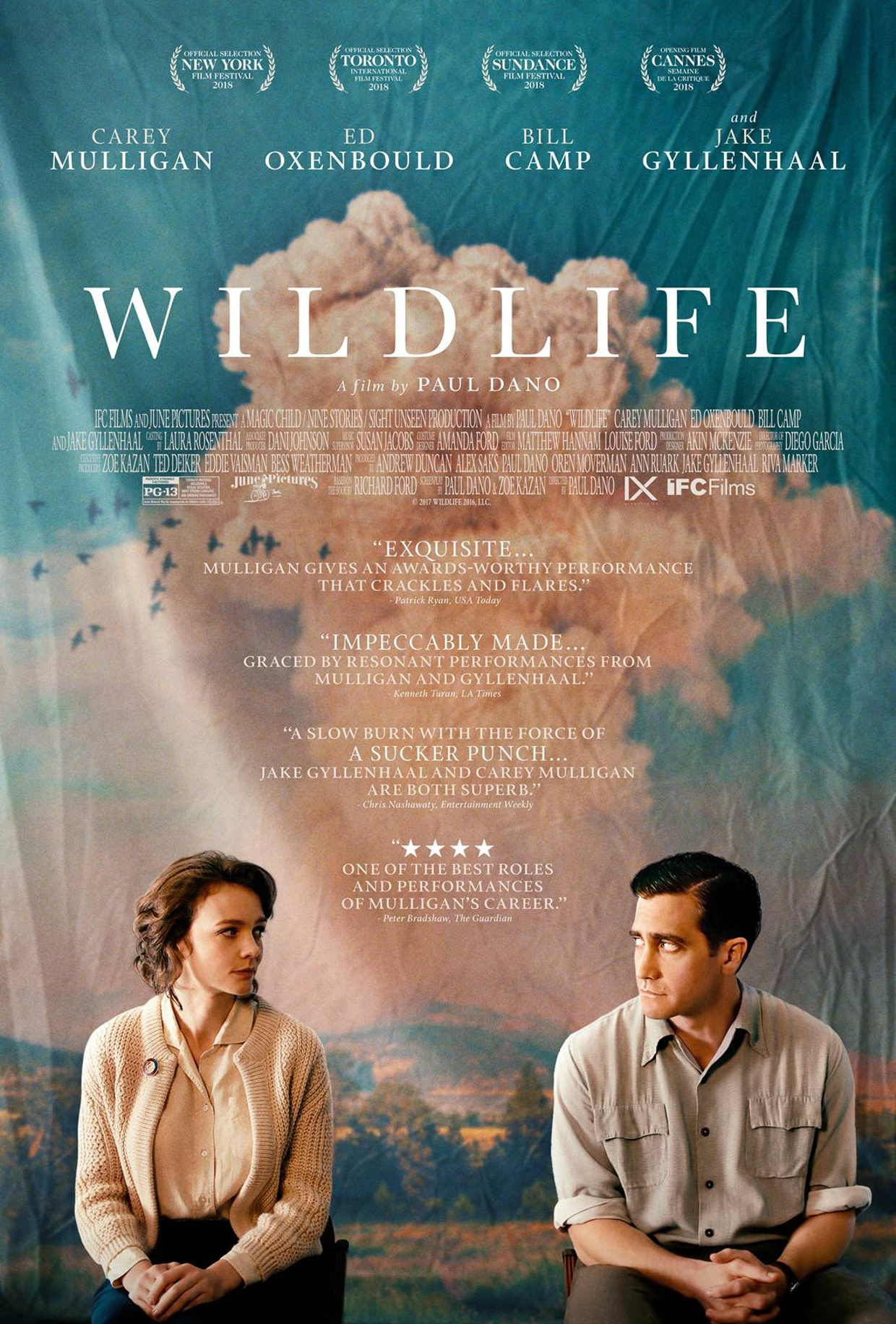Film Review: Wildlife (2018)



Paul Dano’s directorial debut checks a lot of the right boxes. It’s has a small, reserved style, but manages a powerful and tense atmosphere. It’s an old-school approach à la The Last Picture Show (1971), perhaps, that serves its 1960 setting very well. Couple this reticent approach with explosive powerhouse performances and Dano is really on to something. There are a few formal hiccups, but Wildlife is well worth a look. I’d keep my eye on Dano, too.

The subtlety of Wildlife lies in what’s shown but not said. We’re made to completely understand that the marriage between Jeanette and Jerry (Carey Mulligan and Jake Gyllenhaal) is on the rocks because their son Joe (Ed Oxenbould) sees the couch made up as a bed. Dano doesn’t hold our hand through the process. We all know what that means. Likewise, what may appear to be an unhinged woman on the verge of a breakdown is, in reality, an early-’60s housewife doing her best to cope with something she was never prepared for. The desire for complete independence and control over her own life unnerves and scares her to the point of apparent mania.

Struggling with realizations you’re not equipped to articulate is a theme that reoccurs throughout Wildlife. All three leads find themselves at personal crossroads that heavily affect everyone else but are incapable of correctly explaining their feelings in the interest of understanding. Their whole lives turn into a cycle of self-doubt that can only be reconciled through proper introspection – if they only knew how. So much goes unsaid yet made clear through exposition, with still enough left intentionally vague to allow viewers to imprint their own interpretations. This is very clever filmmaking.

Cary Mulligan deserves all the praise she’s getting and more. Her performance conjures up thoughts of Gena Rowlands in A Woman Under the Influence (1971). She may seem “crazy” at first – certainly inappropriate – but as she slowly reveals herself, the realization that she, like everyone else in the film, is simply ill-equipped for the emotional battle raging within. Any deviation from the norm (especially in 1960) might manifest itself as hysterical or just plain nuts. Gyllenhaal (who I normally dislike) delivers the goods as well. His Jerry is also battling an inner voice, causing him to run and then lash out. The restraint he holds and the confusion he feels is written all over his face. A career-best performance.

Rounding it out is newcomer Ed Oxenbould. The film is told from his point of view, and just like the rest, he’s trapped somewhere he doesn’t want to be. He sees the deterioration of his family almost as an outsider looking in – one who’s powerless to intervene in the massive upheaval happening before his eyes. He loves both his parents but is caught in the middle of their unspoken squabble. Oxenbould’s performance as young Joe is wonderfully small but with heaps of reserved emotion. You can see it coming to a near boil, over and again.

Dano – along with co-writer and partner in crime Zoe Kazan – has put together a very good debut. These two seems very keen to powerful stories, and I hope they continue to choose their battles as wisely as this. Wildlife is an intimate portrait, but also a universal one about societal roles and expectation, happiness and freedom. If this is any indication of what’s to come from this team, we’ve got a lot to look forward to.
